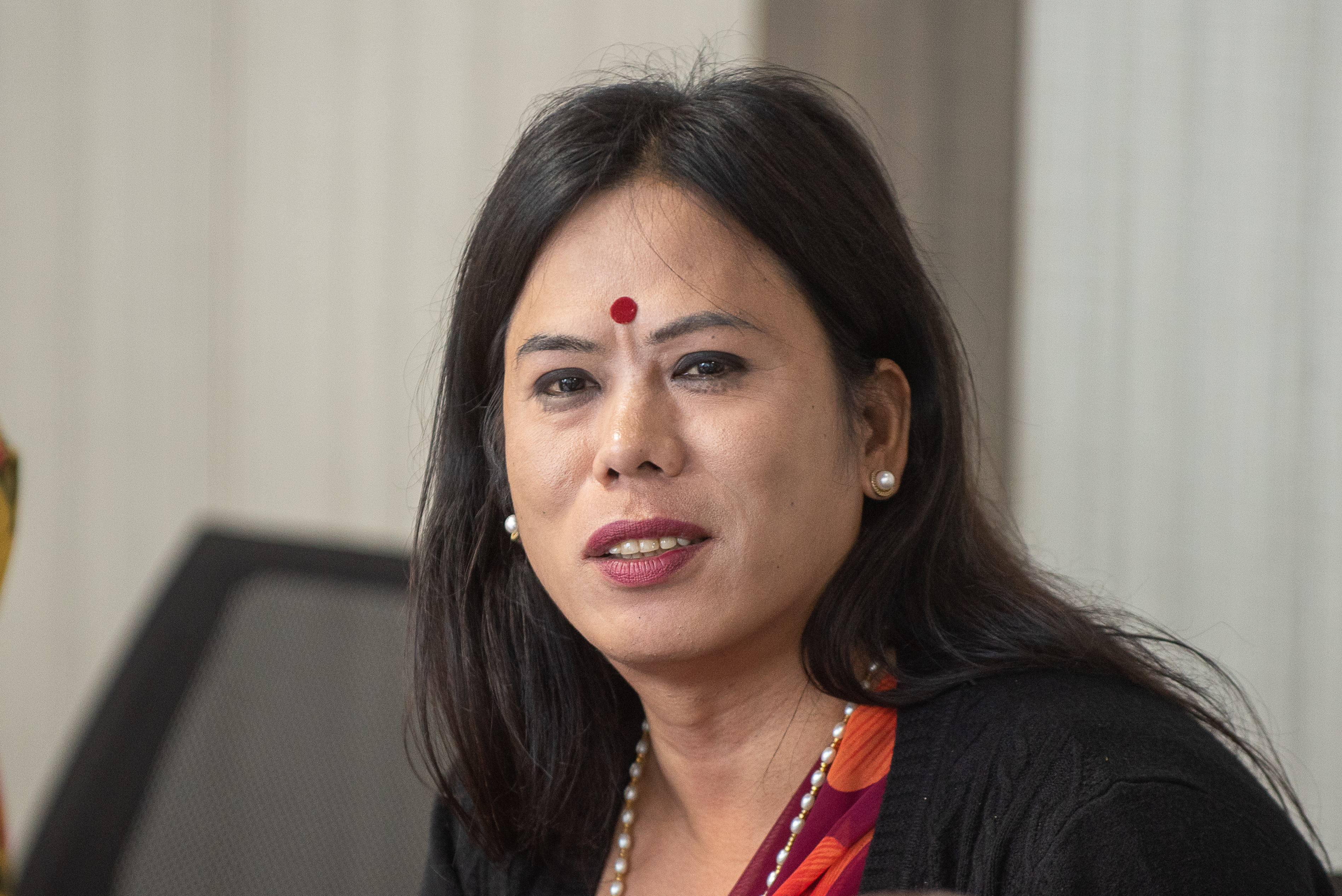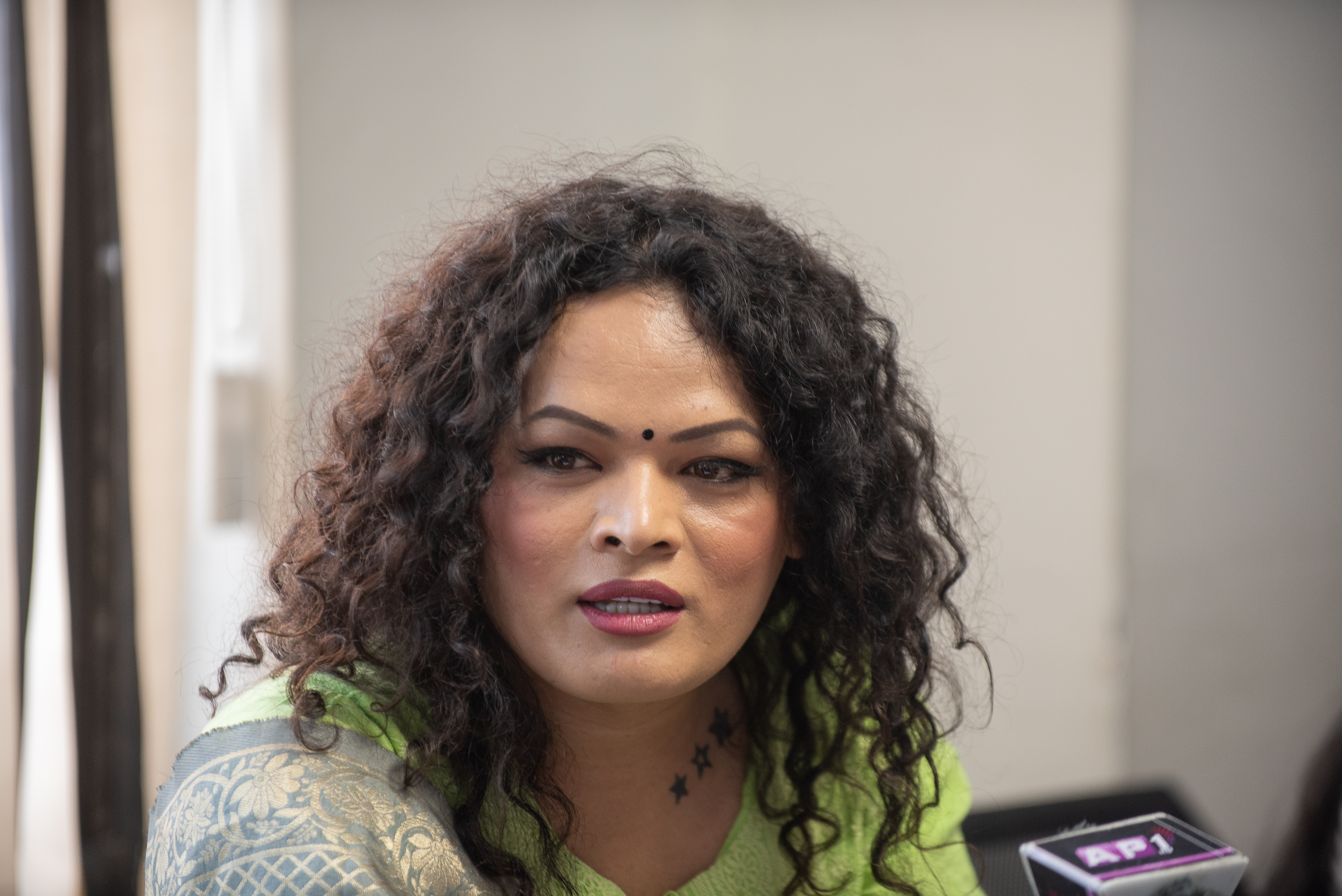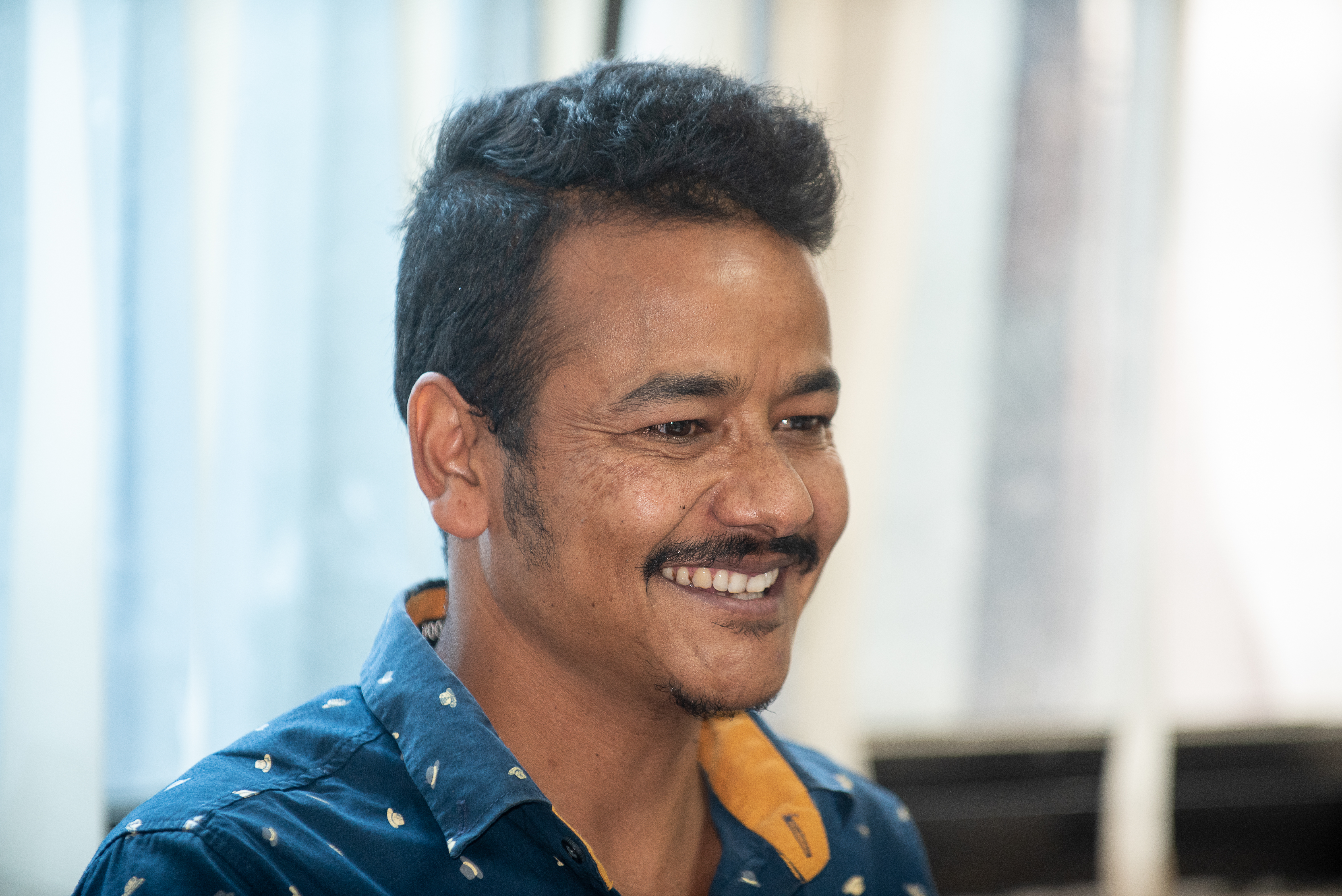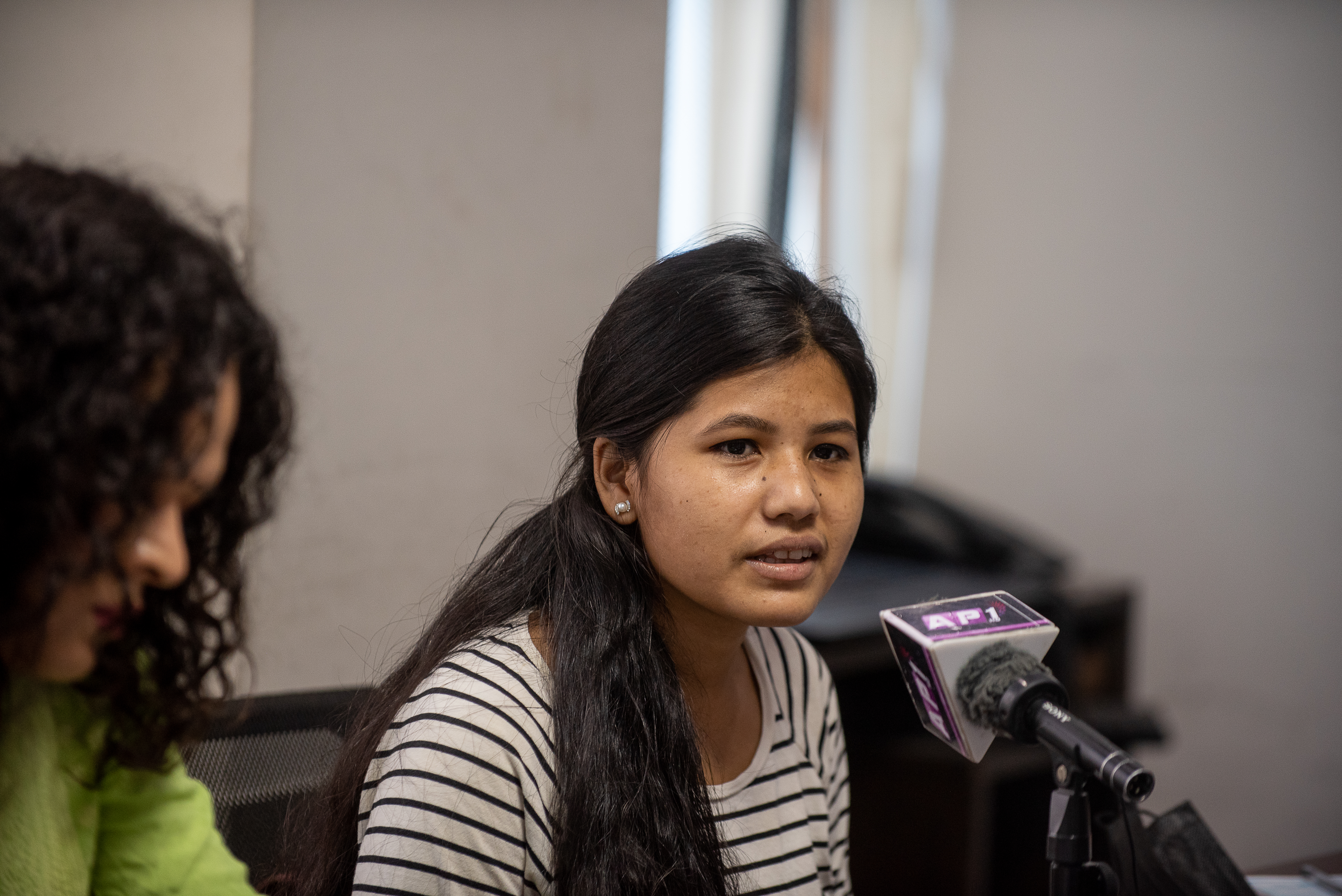The constitution of Nepal has addressed the rights of LGBTIQA+ community in Articles 12, 18, and 42. Third gender has been legally recognized with its inclusion in voter rolls, immigration forms and the census. As the first South Asian country to recognize transgenders, Nepal has a progressive image. But the reality is different as the LGBTIQA+ community is still marginalized and faces discrimination of all kinds on a daily basis. ApEx organized a roundtable with a few representatives of the community to discuss how they are still victimized and what can (and should) be done about it.
The government doesn’t care about us
Pinky Gurung, President, Blue Diamond Society

Everybody wants a dignified life. Nobody wants to be disrespected and humiliated. But the LGBTIQA+ community is treated as an outlier and has to deal with constant discrimination and mental abuse. We have been raising our voice and campaigning for equal rights for 22 years and though we have made some progress, there is still a lot of work to be done to ensure even our basic rights. The government hasn’t addressed our issues because it doesn’t care about us. We are also under-represented data-wise and that puts us at a disadvantage. We had a lot of hopes pinned on the 2021 census but it has let us down.
Apart from identity crisis and societal acceptance, one of our main concerns is lack of work opportunities. This forces many people from our community into sex-work. Then again, sex-work is illegal in Nepal and we land up in problems frequently. So, what do we do to survive? Another issue is that there isn’t an understanding of the different kinds of sexual orientation and gender identities within our own community. When we are unable to understand ourselves, how can we expect other people to do so?
I believe the media has an important role and responsibility in bringing out our issues. Media can be a watchdog and make the government and other sectors accountable for their actions (and inactions).
Transgenders are portrayed as sleazy or comic characters
Neelam Poudel, model, make-up artist and activist

We are never judged by our skills but on how we look and what we wear. It doesn’t matter how much hard work I put in, the moment someone finds out I’m a transwoman they will look down on me and think of me as a sex worker. There is this underlying bias that a transgender can only be a sex worker and nothing else. A doctor has let go of my hand and walked out the moment he realized I was a transgender, denying me a consultation. That incident still makes me nervous about going to the hospital.
Nobody wants to talk about our issues as we make people uncomfortable. The society, unfortunately, is still only used to male and female. There isn’t any room for anything that doesn’t fit those two boxes. The police give us a lot of suggestions but they won’t support us when we need them to. Our stories make it to the papers and television but we aren’t given important positions in those newsrooms. The LGBTIQA+ community is sidelined because we are thought of as incapable and inept.
I think a large part of the problem lies in how we are presented and how people thus perceive us. Transgenders are portrayed as sleazy or comic characters or shown as sex workers lined up on the streets of Thamel in Nepali movies. We need normal, if not positive, representation in stories which can be crucial in changing people’s mindset about us.
Starting a family is next to impossible
Bhakti Shah, activist, Blue Diamond Society

The government doesn’t allocate a budget for our community. Even when it has a couple of times in the past, it hasn’t been dispensed. Where did it go? Why wasn’t it used to uplift our condition, to make life easier for us?
The constitution has granted our rights but there’s no practical implementation of that. As a transman, I should be able to get a citizenship identifying as a male. A transwoman should be able to get it as a female. Not everybody within the LGBTIQA+ community wants to be identified as ‘others’. But that’s the only provision available to us, unless we have a sex change certificate. The thing is not everybody can afford sex-change surgeries. They are expensive. They might not want one either since it’s risky.
Then there’s the issue of child adoption by couples within the LGBTIQA+ community. Starting a family is next to impossible. The government has a provision whereby a man and a woman who have been married for 10 years and don’t have children can adopt. It clearly says a man and a woman. So, two people of the same sex or unmarried couples can’t adopt. Many couples in our community go through a lot of mental turmoil because of that. There are legal loopholes preventing us from enjoying constitutionally guaranteed rights.
People still don’t understand what LGBTIQA+ means
Swastika Nepali, province coordinator, Mitini Nepal

The LGBTIQA+ community is ostracized and harassed on a daily basis. People think we are different, a deviation, and we are discriminated on that basis. It doesn’t help that ours is largely a patriarchal society that values men above all else. We are also limited by our rigid mindsets. Many of us are unable to share our problems with our families and not having anybody to turn to is the main reason for mental health issues in the LGBTIQA+ community.
When I came out as a lesbian, people started wondering if I was faking my periods. Many people thought gays and lesbians don’t have any sex organs. It’s appalling how people still don’t understand what LGBTIQA+ means. Unawareness and misunderstanding promote violence, abuse, and even suicide. A lesbian was raped by her father after she disclosed her sexual orientation. He thought she felt the way she did because she didn’t know what it was like to be with a man.
There are many issues that need to be addressed by the government to ensure our desires and rights aren’t sidelined. One of the main ones is our right to have families of our own. Legal recognition of LGBTIQA+ relationships, including but not limited to same-sex marriages, could be the start of establishing a more gender-neutral society as well as guaranteeing those of the community their basic rights.
Self-acceptance a huge issue in our community
Elyn Bhandari, activist, Blue Diamond Society

I look like a man but I have a uterus. I dread hospital visits. There have been times when I’ve visited gynecologists and they have outright refused to treat me, judging me by my appearance. I’ve received an ultrasound report with the size of the prostate gland, an organ I obviously don’t have, clearly written on it. The registration forms at hospitals only have the option of male and female and that in itself feels like harassment.
Many of us are undergoing hormone therapy but there are very few professionals who understand and are empathetic towards us. The health system should access our needs and create facilities according to our requirements. Health policies and plans aren’t LGBTIQA+ community friendly at the moment.
Self-acceptance is also a huge issue in our community and that stems from having nowhere to go. This leads to a lot of stress and we need counseling. But, again, there aren’t good counselors. We are always in a quandary about where to seek help and usually find all doors shut. Many people say they don’t know what LGBTIQA+ means but I don’t think in this day and age that should be used as an excuse for poor, discriminatory behavior anymore.











